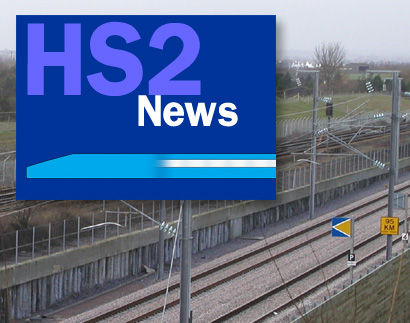MPs on the House of Commons Transport Select Committee have given their support to the building of a High Speed line between London, the Midlands and the north of England.
In a key report published today, the cross-party group says the government has a 'good case' for building a new line linking London, Birmingham, Leeds and Manchester.
It does have some reservations. These include the need to provide 'greater clarity' about the proposals, the assessment of alternatives, the financial and economic case, the alleged environmental gains, connections to Heathrow and justification for the route currently proposed.
The Committee is also warning that it would be 'unacceptable and counterproductive if investment in HS2 led to a diminution of investment in other parts of the rail network'.
It is not convinced, however, that upgrades to the existing 'classic' network would provide an acceptable alternative to HS2, as demand for rail travel continues to rise, saying: 'while the alternatives proposed by groups such as 51m offer substantial additional passenger capacity, they are not of the same scale as HS2. The rapid growth in passenger numbers over the past 15 years shows the need to plan on a larger scale and for the long term'.
It continues: 'We do not wish our successors to be faced with a situation in ten years’ time where demand has continued to grow but insufficient time remains to provide the necessary capacity. We call on the Government to set out a clear and comprehensive long-term strategy for transport and the place of high-speed rail within it'.
The Committee also feels that the level of planning for the second phase of the 'Y' network, which consists of two major spurs from a junction just north of Birmingham, with one route continuing to Manchester and the other Leeds via the East Midlands is not enough, saying that 'The case for investing in a high-speed line between London and the West Midlands depends largely on the assumption that the full Y network will be completed.
'While we can see that the benefits of a more extensive high-speed rail network, embracing Manchester and Leeds, are likely to be greater than those of the London–West Midlands line alone, it is disappointing that even basic information on the Y network, such as the number and location of stations, was not available during the public consultation or during our inquiry. We believe that there should be an urgent strategic appraisal of phase II before a final decision on phase I is taken.'
The report from the Committee is doubtful about the environmental gains which have been claimed for HS2.
It says: 'These claims do not stand up to scrutiny. At best, HS2 has the potential to make a small contribution to the government’s carbon-reduction targets. Given the scale of the expenditure and the official assessment, HS2 should not be promoted as a carbon-reduction scheme. However, if the government’s primary aim is to meet and reinforce demand for interurban travel, HS2 will produce less carbon than an expanded motorway network or a reliance on domestic aviation.'


